
A Young Man's Guide to Late Capitalism is a 2011 novel by Peter Mountford, published by Houghton Mifflin Harcourt.

A Young Man's Guide to Late Capitalism is a 2011 novel by Peter Mountford, published by Houghton Mifflin Harcourt.
In the words of Michael K. Walonen,
Its title playfully aping the Victorian genre of conduct guidebooks for upper class young men, A Young Man's Guide to Late Capitalism recounts the story of Gabriel Francisco de Boya, a former financial reporter newly employed by a rapacious hedge fund and sent to Bolivia to furtively obtain information that will give it a competitive edge in its investment choices. In pursuing this task Gabriel falls in love with Lenka, the press secretary of just-elected President Evo Morales, who unwittingly helps him succeed in his mission by giving him jealousy-fueled false information regarding the nationalization of Bolivia's gas reserves which she thinks will cause his firm to lose money and Gabriel to be guilty of insider trading. The novel ends with Gabriel having been promoted, though alienating both Lenka and his radically leftist anthropology professor mother in the process. He thus achieves the financial security he has sought after but comes to find himself fundamentally alone and prematurely aged. [1]
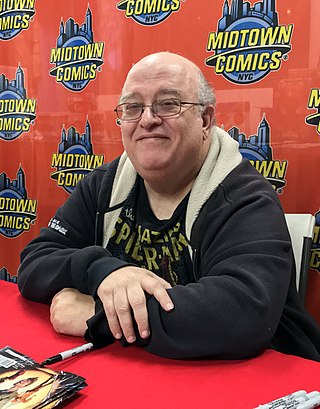
Peter Allen David, often abbreviated PAD, is an American writer of comic books, novels, television, films and video games. His notable comic book work includes an award-winning 12-year run on The Incredible Hulk, as well as runs on Aquaman, Young Justice, SpyBoy, Supergirl, Fallen Angel, Spider-Man, Spider-Man 2099, Captain Marvel and X-Factor.

Beauty and the Beast is an American fantasy-drama television series that first aired on CBS from September 25, 1987 to August 4, 1990. Creator Ron Koslow's updated version of the fairy tale has a double focus: the relationship between Vincent, a mythic, noble man-beast, and Catherine, a savvy Assistant District Attorney in New York City, and a secret utopian community of social outcasts living in a subterranean sanctuary. Through an empathic bond, Vincent senses Catherine's emotions, and becomes her guardian.

The Man Who Was Thursday: A Nightmare is a 1908 novel by G. K. Chesterton. The book has been described as a metaphysical thriller.

The Mayor of Casterbridge: The Life and Death of a Man of Character is an 1886 novel by the English author Thomas Hardy. One of Hardy's Wessex novels, it is set in a fictional rural England with Casterbridge standing in for Dorchester in Dorset where the author spent his youth. It was first published as a weekly serialisation from January 1886.

The Lost World is a science fiction novel by British writer Sir Arthur Conan Doyle, published by Hodder & Stoughton in 1912, concerning an expedition to a plateau in the Amazon basin of South America where prehistoric animals still survive. It was originally published serially in the Strand Magazine and illustrated by New-Zealand-born artist Harry Rountree during the months of April–November 1912. The character of Professor Challenger was introduced in this book. The novel also describes a war between indigenous people and a vicious tribe of ape-like creatures.
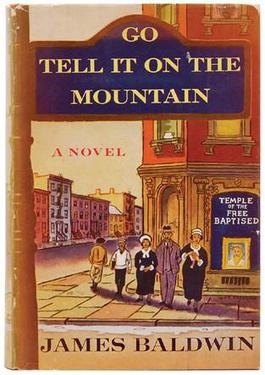
Go Tell It on the Mountain is a 1953 semi-autobiographical novel by James Baldwin. It tells the story of John Grimes, an intelligent teenager in 1930s Harlem, and his relationship with his family and his church. The novel also reveals the back stories of John's mother, his biological father, and his violent, fanatically religious stepfather, Gabriel Grimes. The novel focuses on the role of the Pentecostal Church in the lives of African Americans, both as a negative source of repression and moral hypocrisy and a positive source of inspiration and community. In 1998, the Modern Library ranked Go Tell It on the Mountain 39th on its list of the 100 best English-language novels of the 20th century. Time magazine included the novel on its list of the 100 best English-language novels released from 1923 to 2005.
The Winter of Our Discontent is John Steinbeck's last novel, published in 1961. The title comes from the first two lines of William Shakespeare's Richard III: "Now is the winter of our discontent / Made glorious summer by this sun [or son] of York". Steinbeck's only work to entirely take place on the East Coast of the United States, the setting is based in Sag Harbor, New York.

Peter Gabriel is the debut studio album by the English singer-songwriter and producer Peter Gabriel, released on 25 February 1977 by Charisma Records. After his departure from the progressive rock band Genesis was made public in 1975, Gabriel took a break to concentrate on his family life. In 1976, he began writing material for a solo album and met producer Bob Ezrin, who agreed to produce it. Gabriel hired several additional musicians to play on the album, including guitarist Robert Fripp and bassist Tony Levin. The album was later known as Peter Gabriel I or Car, referring to the album's artwork produced by Hipgnosis. Some music streaming services, including Gabriel's own Bandcamp page, refer to it as Peter Gabriel 1: Car.
Whatever is the debut novel of French writer Michel Houellebecq. The plot concerns a depressed and isolated computer programmer who tries to convince a colleague to murder a young woman who rejected the colleague's sexual advances. A major theme is that the sexual revolution of the 1960s extended capitalism to the sexual market, creating an unattractive sexual underclass. It was adapted into the 1999 film Whatever, directed by and starring Philippe Harel.

The Man of Feeling is a sentimental novel published in 1771, written by Scottish author Henry Mackenzie. The novel presents a series of moral vignettes which the naïve protagonist Harley either observes, is told about, or participates in. The novel is often seen to contain elements of the Romantic novel, which became popular in the years following its publication.
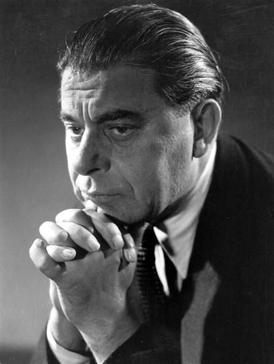
Gabriel Pascal was a Hungarian film producer and director whose best-known films were made in the United Kingdom.
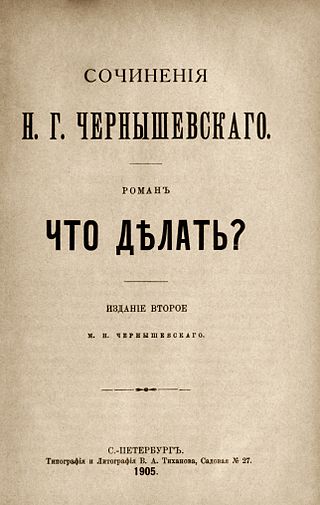
What Is to Be Done? is an 1863 novel written by Russian philosopher, journalist, and literary critic Nikolay Chernyshevsky, written in response to Fathers and Sons (1862) by Ivan Turgenev. The chief character is Vera Pavlovna, a woman who escapes the control of her family and an arranged marriage to seek economic independence.

The Girl with the Dragon Tattoo is a 2009 Swedish-Danish crime thriller film with German co-production directed by Niels Arden Oplev from a screenplay by Rasmus Heisterberg and Nikolaj Arcel and produced by Søren Stærmose, based on the 2005 novel of the same name by Swedish writer Stieg Larsson, the first entry in his Millennium series. The film stars Michael Nyqvist and Noomi Rapace.
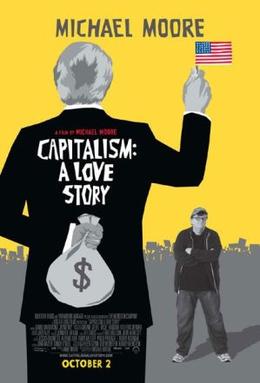
Capitalism: A Love Story is a 2009 American documentary film directed, written by, and starring Michael Moore. The film centers on the late-2000s financial crisis and the recovery stimulus, while putting forward an indictment of the then-current economic order in the United States and of unfettered capitalism in general. Topics covered include Wall Street's "casino mentality", for-profit prisons, Goldman Sachs' influence in Washington, D.C., the poverty-level wages of many workers, the large wave of home foreclosures, corporate-owned life insurance, and the consequences of "runaway greed". The film also features a religious component in which Moore examines whether or not capitalism is a sin and whether Jesus would be a capitalist; this component highlights Moore's belief that evangelical conservatives contradict themselves by supporting free market ideals while professing to be Christians.
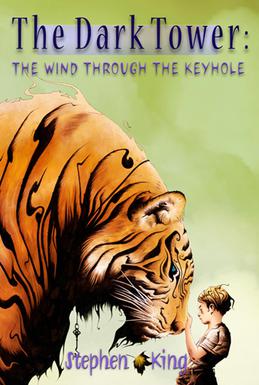
The Dark Tower: The Wind Through the Keyhole is a 2012 fantasy novel by American writer Stephen King. As part of the Dark Tower series, it is the eighth novel, but it is set chronologically between volumes four and five. First mentioned by King in 2009, after the controversial ending of the seventh novel in 2004, the book was officially announced on King's official website on March 10, 2011.

Macho Callahan is a 1970 Mexican-American Western film directed by Bernard L. Kowalski and starring David Janssen, Jean Seberg, Lee J. Cobb and James Booth. The screenplay concerns a Union soldier who is imprisoned in a Confederate prison camp during the American Civil War. He manages to escape, but is pursued by a gang of bounty hunters.
Peter Mountford is an American novelist and writer of short stories and non-fiction.

The Shadow Line is a seven-part British television drama miniseries produced by Company Pictures/Eight Rooks Ltd/Baby Cow/CinemaNX production for BBC Two. It stars Chiwetel Ejiofor, Christopher Eccleston, Rafe Spall, Lesley Sharp, Kierston Wareing, Antony Sher and Stephen Rea. The series was written, directed and produced by Hugo Blick.

The Words is a 2012 American mystery romantic drama film, written and directed by Brian Klugman and Lee Sternthal in their directorial debut. It stars Bradley Cooper, Zoe Saldana, Olivia Wilde, Jeremy Irons, Ben Barnes, Dennis Quaid, and Nora Arnezeder. Cooper, a childhood friend of Klugman and Sternthal from Philadelphia, was also the executive producer.
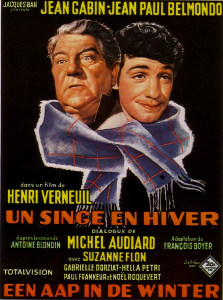
A Monkey in Winter is a 1962 French comedy-drama film directed by Henri Verneuil. It is based on the novel A Monkey in Winter by Antoine Blondin. Set in a Normandy seaside town, it recounts the meeting and parting of two men at odds with life, one an old hotel keeper who dreams of dashing deeds in pre-war China and the other a young advertising executive who imagines he is an incarnation of Hispanic masculinity.